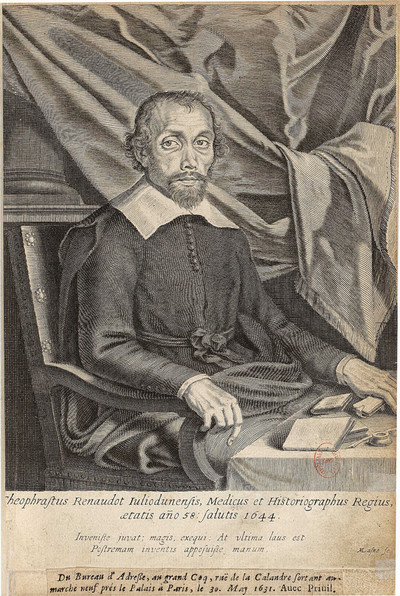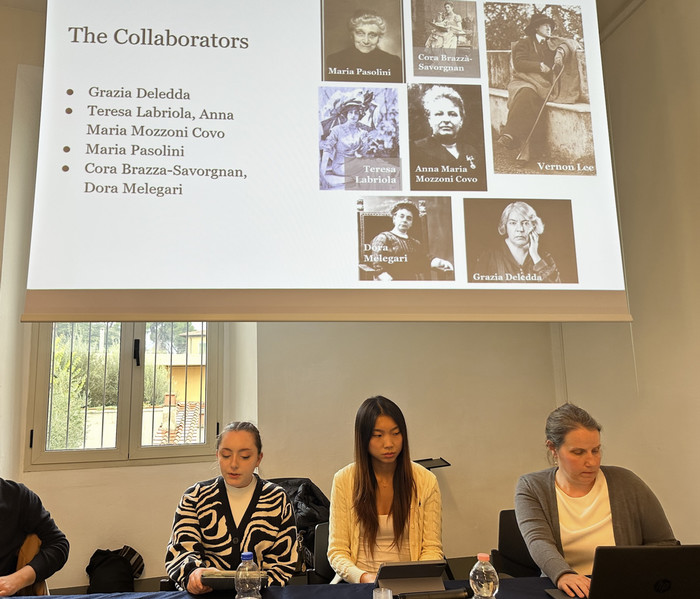Exploring Attitudes toward Race in Early Modern France
By Tom PorterWith the help of a summer stipend from the National Endowment for the Humanities, French literature and history scholar Katherine Dauge-Roth is in France over the break, exploring how attitudes toward skin color were shaped in the seventeenth century and why this remains important.

“My hope is that by examining early modern race thinking, at a time before the word “race” was even used with its modern meaning, we can better comprehend its insidious workings and dismantle its inheritances today,” said Associate Professor of Romance Languages and Literatures Dauge-Roth, currently carrying out research at the Bibliothèque Nationale de France in Paris.
The focus of her work, which will culminate in a scholarly article, is a conference held in Paris nearly four hundred years ago that sheds new light on attitudes that helped define European thinking about Blackness and fuel anti-Black racism for centuries to come.
The widely attended event in 1640, one of a series of so-called “Bureau d’adresse” conferences held in the 1630s and ’40s at the heart of Paris, was organized by influential medical doctor and journalist Théophraste Renaudot (1586-1653), said Dauge-Roth, who described the gathering as likely the first-ever recorded public conversation on Blackness. Despite its importance, she explained, the conference has been largely unknown and ignored until recently, when Dauge-Roth came across a transcription of it in the archives. “During my 2019–2020 leave in Paris, I was paging conference minutes for another project, when I came across this one by chance. It was one of those serendipitous finds that only happens in libraries and archives.”
“The Bureau d’adresse conferences are unique because of their public nature and format. Topics were chosen by the assembly itself from week to week, and several different speakers took the floor to express a variety of points of view,” said Dauge-Roth. Since the assembly itself chose the topics to be addressed at its meetings, she explained, the subjects discussed at the Bureau’s conferences may be seen as good indicators of what questions were being debated at the time. “They represented ‘hot topics’ or curiosities that were interesting or controversial enough to allow orators to display their knowledge and intellectual virtuosity. It is precisely for this reason,” she continued, “that this conference is so useful as a snapshot of race-thinking in seventeenth-century France.”
The concept of race, especially the idea of it being linked to physical differences like skin color, has generally been regarded as being an invention of the eighteenth-century Enlightenment, said Dauge-Roth. However, as this project shows, it was already the subject of keen intellectual debate a century earlier. “The recorded conference minutes provide fascinating—if deeply troubling—insight into the ideas circulating in Europe about the origins of human difference, and of Blackness in particular, in this earlier understudied period.”
“During my 2019–2020 leave in Paris, I was paging conference minutes for another project, when I came across this one by chance. It was one of those serendipitous finds that only happens in libraries and archives.”
While acknowledging that discrimination based on difference has long been a trait of humanity, Dauge-Roth explained that scientific and popular curiosity around the origins of skin color and other distinguishing physical traits took on new urgency in the European seventeenth century. “The political and economic importance of affirming Afro-descendant persons’ difference from Europeans became paramount as the major European colonial powers engaged in the capture, enslavement, and deportation of sub-Saharan Africans to power their burgeoning plantations in the Atlantic and North America. Affirming their captives’ distinct and inferior nature was key to justifying the horrors of chattel slavery,” she stressed. “This is what makes the ideas expressed at the 1640 Renaudot conference, which took place just as France was entering the slave trade in earnest, so important to study. By displaying the wildly inventive ways the French characterized Afro-descendant persons, this conference also reinforces the fictional and political nature of race itself.”
As well as the article—titled “Defining Blackness: Difference, Skin Color, and Enslavement in Early Seventeenth-Century France” for submission to a leading journal of early modern studies— Dauge-Roth also plans a fully annotated scholarly edition and English translation of the original printed minutes of the conference. The project is due to be finished at the conclusion of her NEH grant period in August.



